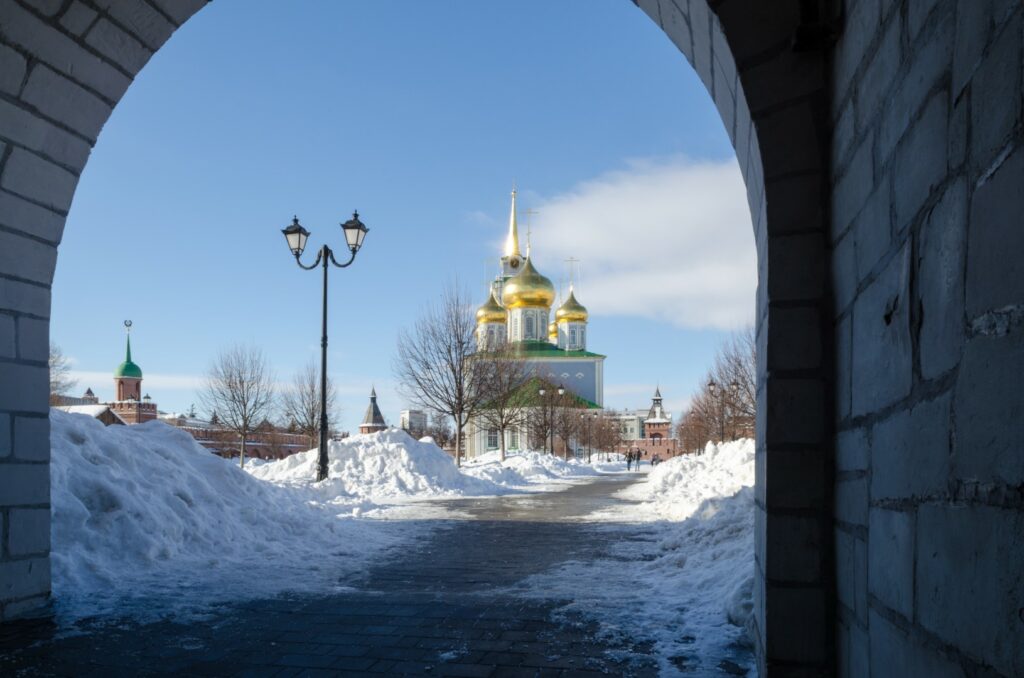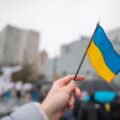Why is the World Council of Churches unlikely to expel the Russian Orthodox Church?
Why is the World Council of Churches unlikely to expel the Russian Orthodox Church?
Can thinking about the World Council of Churches as the UN of ecumenical relations help understand the hesitation to expel the Russian Orthodox Church?
Although more and more countries have cut their ties to Russia,[1] expelled Russian diplomats,[2] and while private companies pull from the Russian market in light of the Russian invasion of Ukraine, the ecumenical politics seem to follow a different logic. While calling for peace,[3] the World Council of Churches (WCC) has not terminated the Russian Orthodox Church’s (ROC) membership, despite the explicit support for the invasion by the ROC’s Patriarch. Many may wonder: Why are they not more firm in their response? A look at the roots of ecumenical politics might help shed some light on their reasons.
A short history of the World Council of Churches
From its inception, the WCC was inspired by a vision of the “fellowship of the churches,” a Christian version of the League of Nations, the predecessor of today’s UN.[4] Although it started with 147 predominantly Western and Protestant member churches during its first assembly in 1948, it expanded denominationally and geographically in the next few decades, reaching 352 churches in 120 countries all over the world today.[5] The ROC joined in 1961, swiftly after the application,[6] and has been a member ever since, with continued representation at each general assembly.[7] WCC remained cautious in its politics throughout this time, refraining from openly criticising the anti-religious efforts in USSR.[8]
Calls to expel the Russian Orthodox Church by the World Council of Churches
In light of the recent events in Ukraine, and Patriarch Kirill of Moscow’s support for the Russian invasion, calls were raised to expel the ROC from the WCC.[9] [10] [11] But the critique comes also from within the Moscow Patriarchate, as the Orthodox priests in Ukraine belonging to it call for the expulsion of Patriarch Kirill and for a church trial to be arranged over his support for the invasion.[12]
Cautious approach?
Already before the war, the WCC expressed its worry about the increasing tensions,[13] and, from the first day of the invasion, called for immediate end to the hostilities.[14] [15] The WCC expressed worry over resulting food insecurity in Africa,[16] abhorrence in light of the reported war atrocities in Bucha and the rest of North Ukraine,[17] and extended condolences to members of Caritas who lost their lives.[18] In collaboration with ACT Alliance, the WCC also sent a delegation to Ukraine, Hungary, and Romania to assess humanitarian needs and the response of the local churches.[19]
However, in approaching the Moscow Patriarchate, the WCC was ambivalent. On the one hand, the WCC published the condemnation of the aggression by the Metropolitan Onuphry of Kyiv and All Ukraine from Moscow Patriarchate. The acting general secretary of the WCC, Ioan Sauca, called Patriarch Kirill to raise his voice in stopping the violence.[20]
On the other hand, however, the WCC seemed to step cautiously in directly addressing ROC and its patriarch. Responding to the letter from acting general secretary of WCC, Patriarch Kirill blamed NATO and Western propaganda for the invasion. He also accused the Patriarch of Constantinople of generating schism. Despite these statements, he expressed hope that “the World Council of Churches will be able to remain a platform for unbiased dialogue, free from political preferences and one-sided approach.”[21] This was met with no significant reproach from the WCC. Quite the opposite, it was met with a neutral press note.[22] Moreover, many of the notes tried to take the perspective of both sides, highlighting not only the Ukrainian suffering, but also that of Russians, for example in the “WCC acting general secretary letter to Mme Olena Zelenska, First Lady of Ukraine.”[23] [24]
The UN of Ecumenical Relations
The understanding of the WCC in terms of ‘Christian UN’ may explain the cautiousness in expelling any of its members. The task of the WCC is not to punish the ‘wayward’ members, but to provide a platform for debate and collaboration between the representatives of different Christian churches, even in the conditions of increasing tensions and hostilities. As the WCC acting general secretary pointed out when questioned about the possibility of expulsion, similar situations took place in the past, when a vast majority of members condemned the action of another member over such issues as the support for Apartheid, Gulf War, or war in Yugoslavia. In none of these situations the WCC decided to expel or suspend a member. As Sauca stated,
It would be very easy to use the language of the politicians but we are called to use the language of faith, of our faith. It is easy to exclude, excommunicate, demonize; but we are called as WCC to use a free and safe platform of encounter and dialogue, to meet and listen to one another even if and when we disagree. This has always been the WCC and I would suffer greatly if during my time this vocation will be lost and the nature of the WCC changes.[25]
Is this a turning point?
While this was the case in the past, the calls for expulsion are gathering support, alongside the internal pressures for putting Patriarch Kirill on trial within the Moscow Patriarchate.[26] Some argue that the Russian Orthodox Church is complicit in the war,[27] while Rowan Williams, the former Archbishop of Canterbury, said that there is a strong case for expulsion.[28] The key moment will come at the beginning of June, when the next meeting of the WCC central committee will take place, the body that can take a decision on expulsion. Then we will know whether 2022 will prove a turning point for the WCC ecumenical politics.
You can use the free EARS Dashboard to learn more about trends and developments on the topic of religion and society. Hundreds of article summaries from all over the world were added in the past month!
Sources
[1] Who Is Cutting Ties With Russia Over War in Ukraine: List – Bloomberg
[2] EU allies expel 200 Russian diplomats in two days after Bucha killings | Russia | The Guardian
[3] Which Companies Have Pulled Out of Russia? Here’s a List. – The New York Times (nytimes.com)
[4] History | World Council of Churches (oikoumene.org)
[5] What is the World Council of Churches? | World Council of Churches (oikoumene.org)
[6] New Delhi Agenda: Russian Orthodox Bid for WCC Membership | Christianity Today
[7] Orthodox churches (Eastern) | World Council of Churches (oikoumene.org)
[8] A Plea for Soviet Churches | Christianity Today
[9] Orthodox priests in Ukraine seek removal of Patriarch Kirill | Crux (cruxnow.com)
[10] World Council of Churches faces calls to expel Russian Orthodox Church (religionnews.com)
[11] The World Council of Churches must act with courage and expel Kirill, Russian Orthodox Church (religionnews.com)
[12] Orthodox priests in Ukraine seek removal of Patriarch Kirill | Crux (cruxnow.com)
[13] WCC gravely concerned for people of Ukraine amid escalating tensions | World Council of Churches (oikoumene.org)
[14] WCC calls for an immediate end to the current armed hostilities | World Council of Churches (oikoumene.org)
[15] WCC urges President Putin to stop war, restore peace to Ukraine | World Council of Churches (oikoumene.org)
[16] Church leaders in Africa highlight impacts of Ukraine war on food security | World Council of Churches (oikoumene.org)
[17] WCC expresses abhorrence at reported atrocities in Ukraine | World Council of Churches (oikoumene.org)
[18] WCC extends condolences to Caritas upon death of staff in Ukraine | World Council of Churches (oikoumene.org)
[19] ACT Alliance, WCC delegation visits Hungary, Ukraine and Romania with a focus on humanitarian needs, church response | World Council of Churches (oikoumene.org)
[20] WCC acting general secretary to Patriarch Kirill of Moscow: “raise up your voice so that the war can be stopped” | World Council of Churches (oikoumene.org)
[21] Response by H.H. Patriarch Kirill of Moscow to Rev. Prof. Dr Ioan Sauca (English translation) | World Council of Churches (oikoumene.org)
[22] Patriarch Kirill responds to WCC acting general secretary’s letter urging voice for peace | World Council of Churches (oikoumene.org)
[23] WCC acting general secretary letter to Mme Olena Zelenska, First Lady of Ukraine | World Council of Churches (oikoumene.org)
[24] WCC to presidents of Russia and Ukraine: “a peaceful solution is in your hands alone” | World Council of Churches (oikoumene.org)
[25] Fr Ioan Sauca: “God is on the side of those who are suffering” | World Council of Churches (oikoumene.org)
[26] Orthodox priests in Ukraine seek removal of Patriarch Kirill | Crux (cruxnow.com)
[27] The Russian Orthodox Church is complicit in the war with Ukraine | Voice (christianpost.com)
[28] ‘Strong case’ to expel Russian Orthodox Church from ecumenical body, says Rowan Williams (christiantoday.com)






